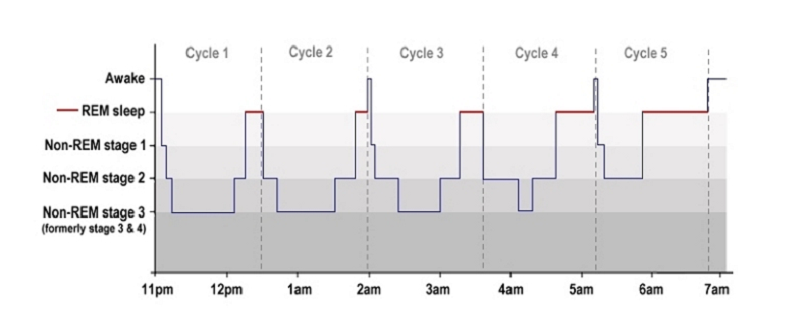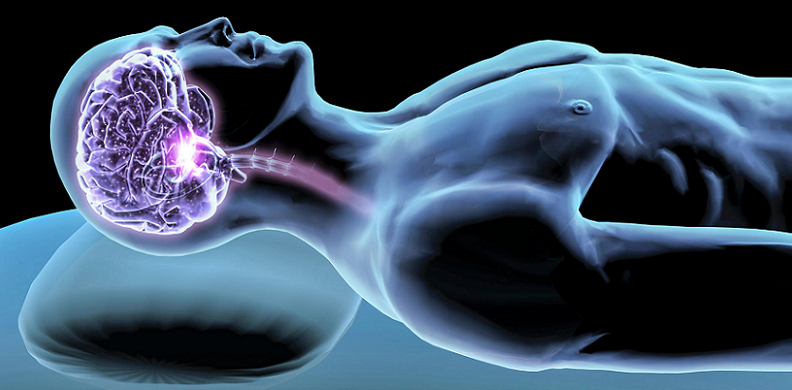
Sleep is not just a passive state of rest, but a crucial component of our cognitive health. Unusual sleep patterns, such as insomnia, hypersomnia, or disrupted sleep due to shift work, can profoundly affect the brain, altering everything from memory and concentration to long-term brain health. Here we examine the intricate relationship between sleep and cognitive health, unraveling how deviations from normal sleep patterns can significantly impact our brain function and overall well-being.
Contents
The Connection Between Sleep and Cognitive Health
The relationship between sleep and cognitive health is both complex and significant. Sleep isn’t merely a period of physical rest; it’s a crucial time for the brain to process, repair, and strengthen itself. Understanding how sleep patterns influence cognitive functions can shed light on the importance of maintaining healthy sleep habits.
Overview of Cognitive Functions Affected by Sleep
Sleep plays a vital role in various cognitive processes. These include memory consolidation, where the brain transfers short-term memories to long-term storage, and cognitive flexibility, the ability to adapt to changing situations and information. Good sleep also enhances attention and concentration, making daily tasks more manageable and improving decision-making skills. In contrast, disrupted sleep can impair these functions, leading to decreased efficiency in both personal and professional life.
How Sleep Patterns Influence Brain Function
The brain undergoes several critical processes during sleep. One of these is the removal of toxins that accumulate during waking hours, a process essential for maintaining brain health. During the deep stages of sleep, the brain also undergoes synaptic pruning, where weaker neural connections are eliminated, and stronger ones are reinforced, enhancing learning and memory.
Different sleep stages contribute uniquely to cognitive health. For instance, REM (Rapid Eye Movement) sleep is closely linked with processing emotional experiences and consolidating memory. Meanwhile, non-REM sleep is vital for restorative functions, like tissue repair and growth hormone release.
In cases of unusual sleep patterns, these processes are disrupted. Insufficient or irregular sleep can lead to a buildup of neurotoxic waste, adversely affecting cognitive functions. Chronic sleep disruptions have been linked to a higher risk of neurodegenerative diseases like Alzheimer’s, showcasing the deep connection between sleep quality and brain health [1].
Types of Unusual Sleep Patterns
Understanding the types of unusual sleep patterns is key to recognizing their effects on brain health. While everyone experiences occasional sleep disturbances, chronic or severe deviations from normal sleep patterns can significantly impact cognitive functions and overall well-being.
Insomnia
Insomnia, one of the most widely known sleep disorders, is characterized by difficulty falling asleep, staying asleep, or both. People with insomnia often experience fatigue, mood disturbances, and cognitive impairment due to the lack of restorative sleep. This condition can be acute, lasting a few days or weeks, or chronic, persisting for months or even years. Chronic insomnia can be particularly detrimental to cognitive health, affecting memory, attention, and problem-solving abilities.
Hypersomnia
On the opposite spectrum of insomnia is hypersomnia, a condition marked by excessive sleepiness during the day. Individuals with hypersomnia may sleep for extended periods at night and still feel excessively drowsy during the day. This can lead to difficulties in concentration and maintaining alertness, impacting daily functioning and cognitive performance. Hypersomnia may be a symptom of other underlying health issues, such as sleep apnea or neurological disorders [2].
Irregular Sleep-Wake Rhythm
This disorder is characterized by a lack of a fixed sleep pattern. Individuals with an irregular sleep-wake rhythm experience fragmented sleep cycles throughout a 24-hour period, sleeping and waking in several short spurts rather than having a consolidated sleep period. This can severely disrupt the body’s internal clock, or circadian rhythm, leading to cognitive impairments, mood disturbances, and a decreased quality of life.
Shift Work Sleep Disorder
This disorder affects individuals who work non-traditional hours, such as night shifts or rotating shifts. The disruption of the natural circadian rhythm can lead to difficulties in falling asleep and staying asleep, as well as excessive sleepiness while awake. Over time, this can lead to significant cognitive deficits, including impairments in attention, memory, and decision-making skills, as well as a heightened risk of accidents and errors at work.

Impact of Unusual Sleep Patterns on the Brain
The effects of unusual sleep patterns on the brain are both profound and multifaceted. These patterns can lead to a range of cognitive impairments, affecting everything from memory to decision-making abilities. It’s important to understand how these sleep disturbances translate into changes in brain function and overall cognitive health.
Short-Term Cognitive Impairments
In the short term, unusual sleep patterns can lead to immediate cognitive deficits. Lack of adequate sleep often results in reduced attention span, slower reaction times, and impaired judgment. These effects can be particularly noticeable in people suffering from sleep deprivation due to insomnia or shift work sleep disorder. Even a single night of poor sleep can affect a person’s ability to process information and respond to stimuli effectively [3].
Long-Term Effects on Brain Health
Over time, the impact of chronic sleep disturbances can extend beyond temporary cognitive impairments. Research suggests that long-term sleep deprivation or irregular sleep patterns may contribute to the development of more serious brain health issues, including neurodegenerative diseases like Alzheimer’s and Parkinson’s. Prolonged sleep disruption is linked to the accumulation of beta-amyloid plaques, a hallmark of Alzheimer’s disease, further highlighting the importance of regular, restorative sleep for long-term brain health.
Specific Cognitive Functions Impacted
The impact of unusual sleep patterns on specific cognitive functions is a key area of concern. Memory, both short-term and long-term, is particularly vulnerable. During normal sleep, the brain consolidates memories, transferring information from short-term to long-term storage.
Disrupted sleep interferes with this process, leading to memory lapses and decreased learning ability. Furthermore, executive functions like planning, problem-solving, and decision-making are also adversely affected, as these higher-order cognitive processes require a well-rested brain to function optimally.

Neurological Changes Due to Unusual Sleep Patterns
The impact of unusual sleep patterns extends beyond cognitive symptoms to induce significant neurological changes within the brain. These alterations can range from changes in brain chemistry and structure to alterations in neural pathways. Understanding these changes is crucial for comprehending how sleep disturbances affect brain health and functioning.
Brain Plasticity and Sleep
Brain plasticity, or neuroplasticity, refers to the brain’s ability to change and adapt as a result of experience. Sleep plays a vital role in this process. During sleep, particularly during deep sleep stages, the brain reorganizes and strengthens neural connections. Unusual sleep patterns, such as those caused by insomnia or shift work, can disrupt these processes. This disruption can lead to impaired learning and memory consolidation, as the brain is unable to effectively rewire and strengthen important neural pathways [4].
Neurotransmitter Function and Sleep Deprivation
Neurotransmitters are chemicals that facilitate communication between neurons in the brain. Sleep regulates the levels and functioning of various neurotransmitters, including those associated with mood and cognition, like serotonin and dopamine. Unusual sleep patterns can disrupt the balance of these neurotransmitters, leading to mood disturbances, increased stress, and impaired cognitive functioning. Chronic sleep deprivation can exacerbate these effects, potentially leading to more severe mental health issues and cognitive decline.
Structural Changes in the Brain
Prolonged unusual sleep patterns can also lead to structural changes in the brain. Research has shown that chronic sleep deprivation can result in a reduction in gray matter volume in areas of the brain responsible for cognitive processing and emotional regulation.
This reduction can have significant implications for cognitive abilities and emotional well-being. Additionally, sleep disturbances can affect the integrity of the blood-brain barrier, a critical structure that helps protect the brain from harmful substances.
Managing and Mitigating the Effects of Unusual Sleep Patterns
While the impact of unusual sleep patterns on the brain can be significant, there are effective strategies to manage and mitigate these effects. Addressing sleep disturbances involves a combination of lifestyle changes, medical interventions, and specific strategies tailored to individual needs and conditions.
Lifestyle Changes to Improve Sleep Quality
One of the most straightforward ways to combat the effects of unusual sleep patterns is through lifestyle modifications. This includes establishing a regular sleep schedule, creating a sleep-conducive environment (dark, quiet, and cool), and avoiding stimulants like caffeine and electronics before bedtime. Additionally, incorporating relaxation techniques such as meditation, deep breathing exercises, or gentle yoga can help in preparing the mind and body for sleep [5].
Medical Interventions and Therapies
In cases where lifestyle changes are not sufficient, medical interventions may be necessary. Consulting a healthcare professional can help in identifying the underlying causes of sleep disturbances. Treatment options may include cognitive-behavioral therapy for insomnia (CBT-I), which is particularly effective in addressing the psychological aspects of sleep disorders. In some cases, medication may be prescribed, although it is typically considered a short-term solution due to potential side effects and dependency issues.
Strategies for Shift Workers
For individuals with shift work sleep disorder, specific strategies are required to cope with the irregular hours. This includes practicing good sleep hygiene, using light therapy to adjust the body’s circadian rhythm, and strategically scheduling naps to minimize sleep debt. Employers can also play a role by designing shift schedules that are more aligned with natural circadian rhythms and allowing for adequate rest periods between shifts.
References
[1] Irregular sleep-wake syndrome
[2] Brain Basics: Understanding Sleep
[3] Irregular Sleep-Wake Rhythm Disorder
[4] Why Sleep Is Important for Brain Health
[5] Associations between self-reported sleep patterns and health, cognition and amyloid measures

